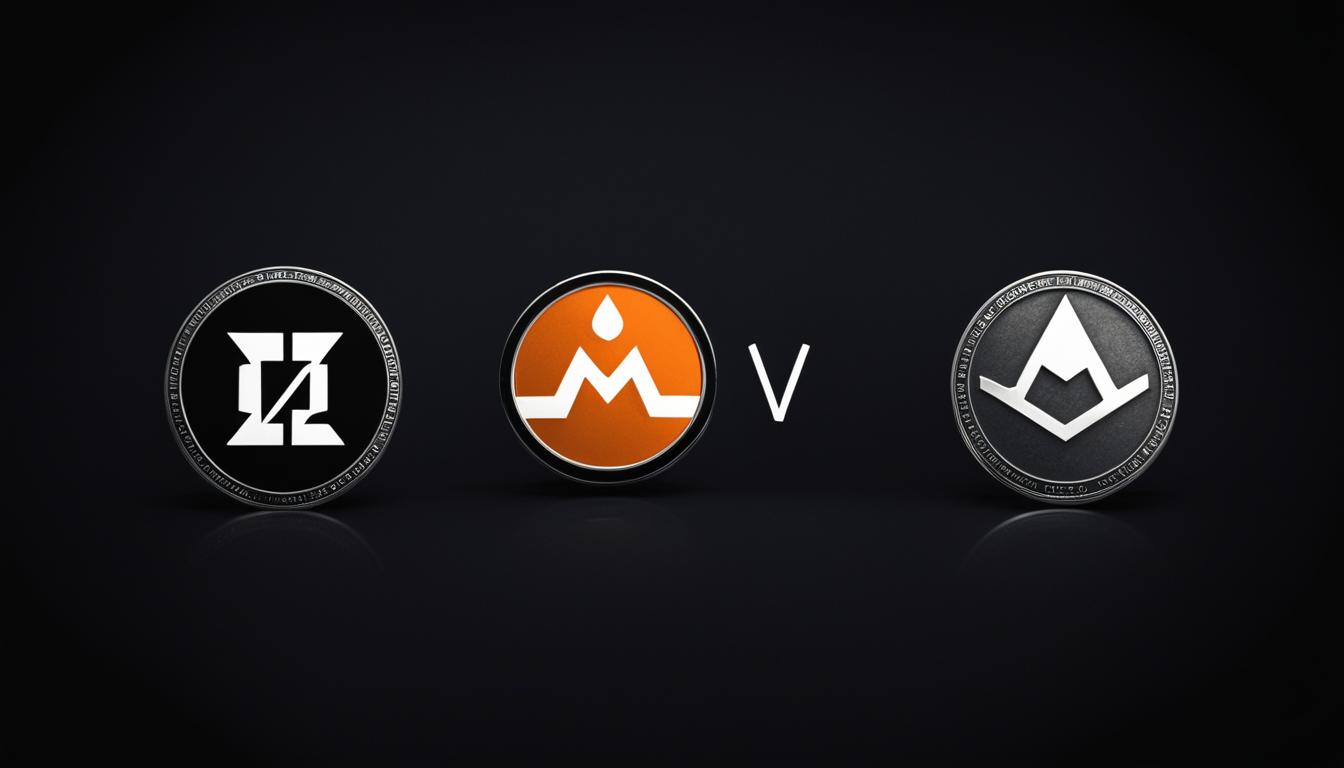In today’s digital world, privacy has become a fundamental concern for businesses and individuals alike. As cryptocurrencies continue to gain popularity, privacy-focused coins like Monero (XMR) and Zcash (ZEC) are attracting attention for their ability to offer anonymous transactions.
Both Monero and Zcash were developed with the goal of providing maximum security and privacy in transactions, in contrast to Bitcoin’s pseudonymous nature. Monero utilizes features such as Ring Signatures, Ring Confidential Transactions (RingCT), and Stealth Addresses to ensure confidential transactions. Meanwhile, Zcash employs the zk-SNARKs protocol to allow users to validate transactions without revealing any information about the transaction itself.
These privacy coins are gaining traction in the cryptocurrency market and offer enhanced security features for users.
Key Takeaways:
- Privacy coins like Monero and Zcash offer anonymous transactions in contrast to the pseudonymous nature of Bitcoin.
- Monero utilizes Ring Signatures, RingCT, and Stealth Addresses to ensure confidential transactions.
- Zcash employs the zk-SNARKs protocol to allow users to validate transactions without revealing any information.
- Privacy coins are gaining popularity in the cryptocurrency market due to their enhanced security features.
- These coins cater to individuals and businesses that prioritize data protection and privacy.
Balancing Privacy and Compliance for Privacy Coins
As the popularity of privacy coins such as Monero and Zcash continues to rise, developers and stakeholders in the cryptocurrency industry face the challenge of striking a balance between privacy and compliance. One potential solution to address concerns about the potential misuse of privacy coins for illicit activities is the implementation of stringent Know-Your-Customer (KYC) and Anti-Money Laundering (AML) measures for platforms that facilitate the exchange of these coins.
By requiring platforms to verify the identities of their users and monitor transactions for suspicious activities, KYC and AML measures can help combat the risks associated with privacy coins. These measures play a crucial role in protecting the integrity of the cryptocurrency market, ensuring that it remains secure and transparent.
However, it is equally important to advocate for sensible regulations that provide user privacy protection without stifling innovation in the cryptocurrency space. Striking the right balance between privacy and compliance is essential for the continued adoption and use of privacy coins like Monero and Zcash. As businesses and individuals increasingly value their privacy in the digital realm, the demand for digital privacy solutions, including privacy coins, is expected to continue growing.
While privacy coins may face regulatory challenges due to concerns about money laundering and tax evasion, it is vital to recognize their potential role in safeguarding individuals’ financial privacy in an increasingly interconnected world. The ongoing dialogue between industry participants, regulators, and users is essential for shaping a regulatory framework that ensures compliance without compromising the fundamental right to privacy.
FAQ
What are privacy coins?
Privacy coins are cryptocurrencies that offer enhanced privacy and anonymity features in transactions, allowing users to transact without revealing their identities or transaction details.
Why are Monero and Zcash considered privacy coins?
Monero and Zcash are considered privacy coins because they were specifically developed to prioritize and ensure maximum security and privacy in transactions, unlike Bitcoin, which is pseudonymous.
What features do Monero and Zcash utilize to provide privacy in transactions?
Monero utilizes features such as Ring Signatures, Ring Confidential Transactions (RingCT), and Stealth Addresses. Zcash employs the zk-SNARKs protocol, which allows users to validate transactions without revealing any information about the transaction itself.
Who can benefit from using privacy coins like Monero and Zcash?
Privacy coins can benefit individuals and businesses that prioritize data protection and privacy. They are particularly useful for companies involved in merger and acquisition activities to maintain the confidentiality of their dealings. Individual users who value financial privacy can also benefit from these coins.
What regulatory challenges do privacy coins face?
Privacy coins face concerns from governments about potential misuse for illicit activities like money laundering and tax evasion. Regulatory bodies like the Financial Action Task Force (FATF) are establishing guidelines to address these concerns.
How can the balance between privacy and compliance be achieved for privacy coins?
One potential solution is implementing rigorous Know-Your-Customer (KYC) and Anti-Money Laundering (AML) measures for platforms that exchange privacy coins. Advocating for sensible regulations that protect user privacy without stifling innovation is also crucial.
What is the demand for digital privacy solutions?
The demand for digital privacy solutions continues to grow as businesses and individuals value their privacy in the digital realm.
Source Links
- https://blockworks.co/news/crypto-exchanges-delisting-privacy-coins
- https://www.linkedin.com/pulse/monero-zcash-navigating-future-privacy-coins-world-evolving
- https://cryptoslate.com/okx-delisting-triggers-price-fall-for-privacy-cryptos-zcash-and-monero/
- Regulatory and Compliance: Pioneering the Future of Saudi Arabia’s Dedicated Cargo Airline - December 21, 2024
- Financial Strategies: Fueling the Growth of Saudi Arabia’s Dedicated Cargo Airline - December 20, 2024
- Operational Excellence: Ensuring Competitive Edge for Saudi Arabia’s Dedicated Cargo Airline - December 19, 2024






